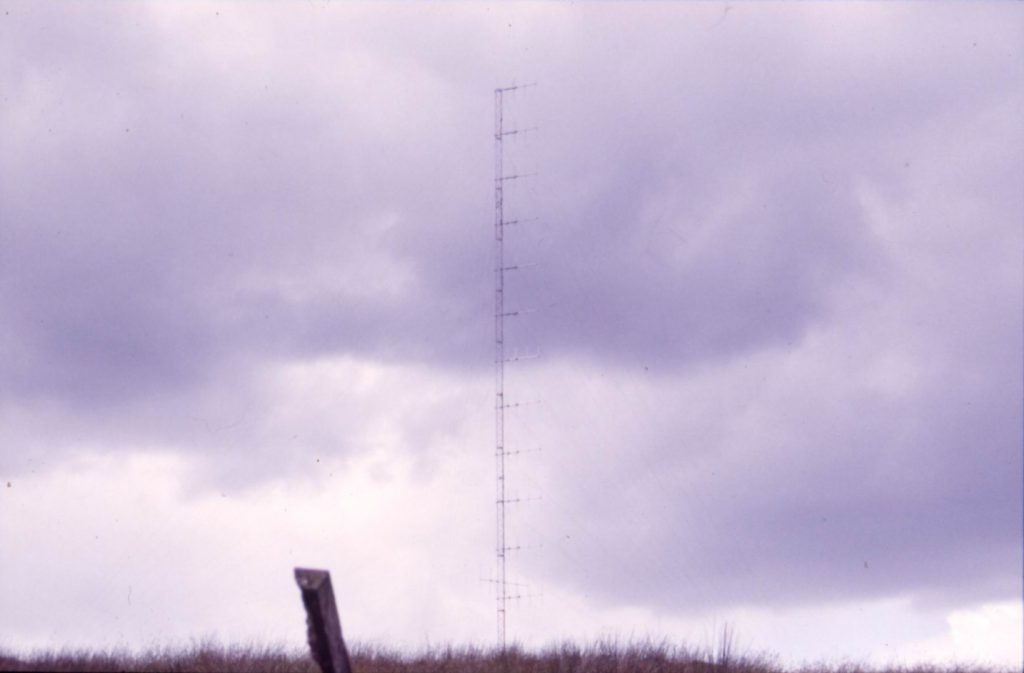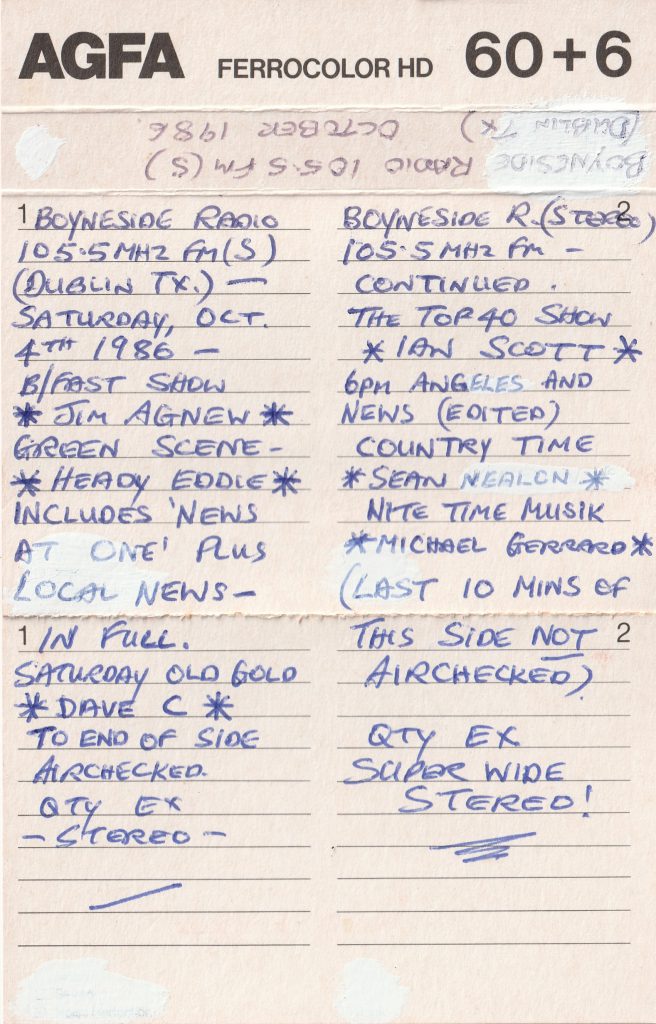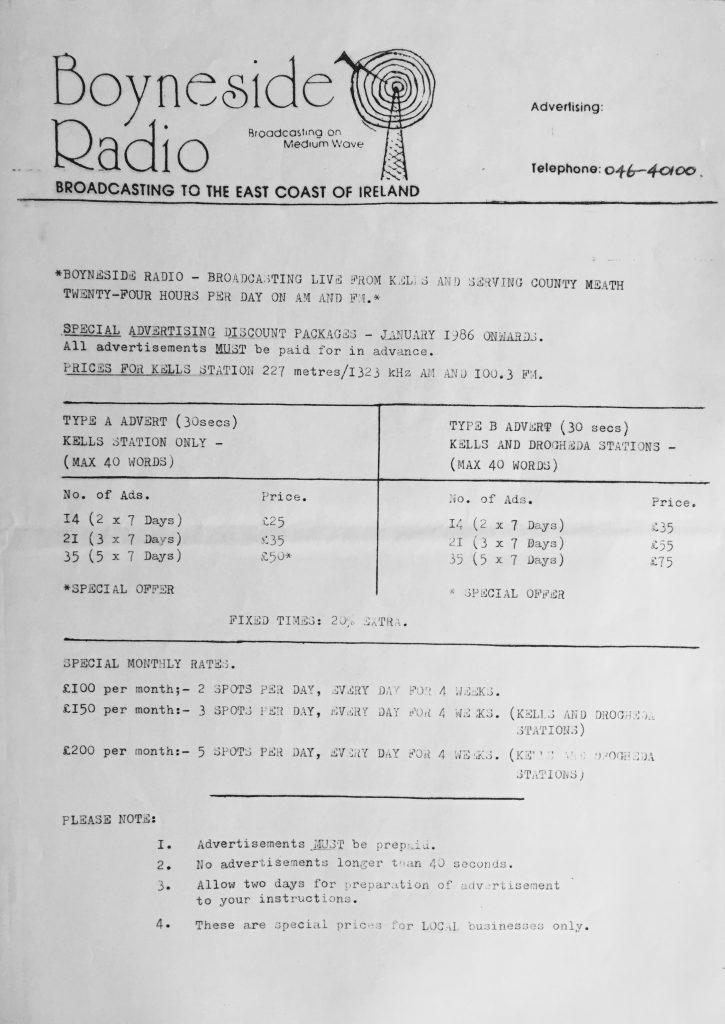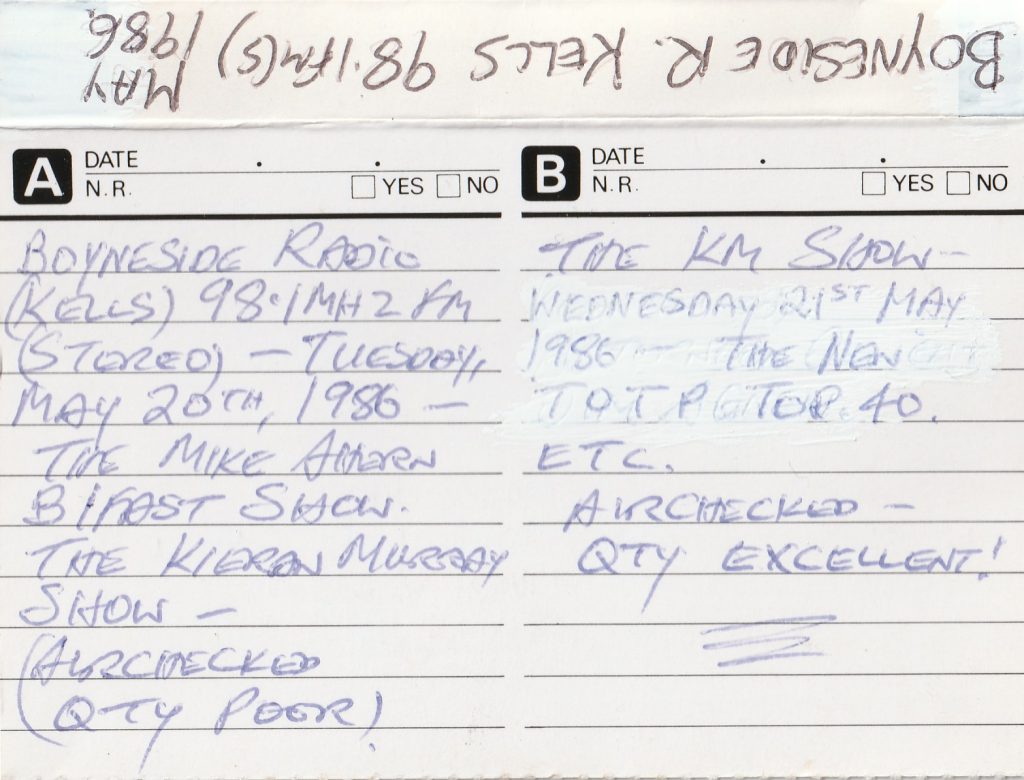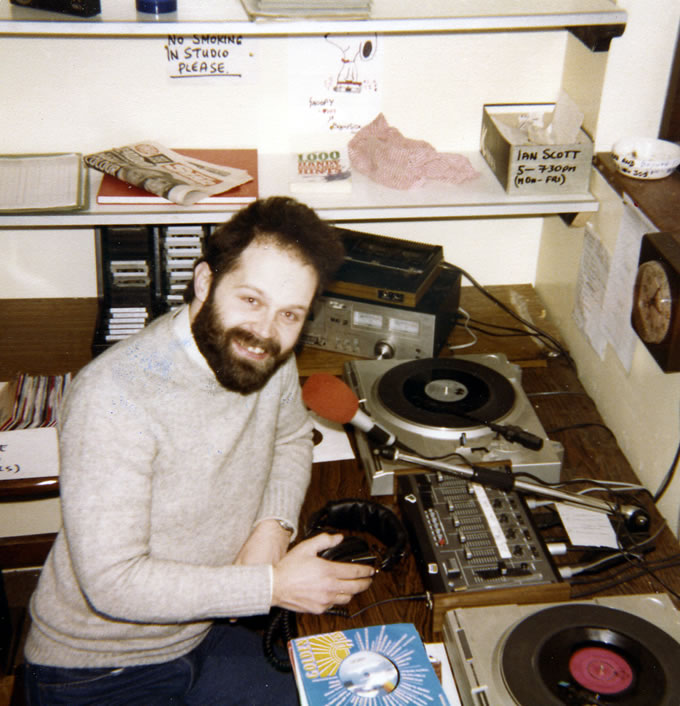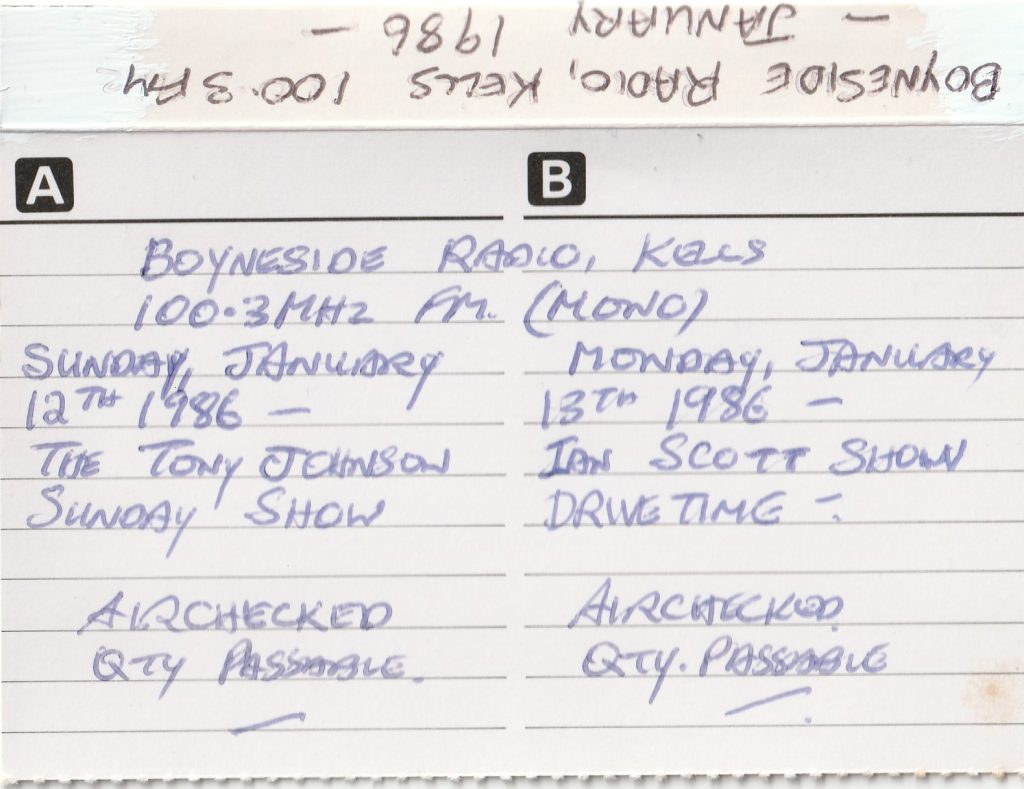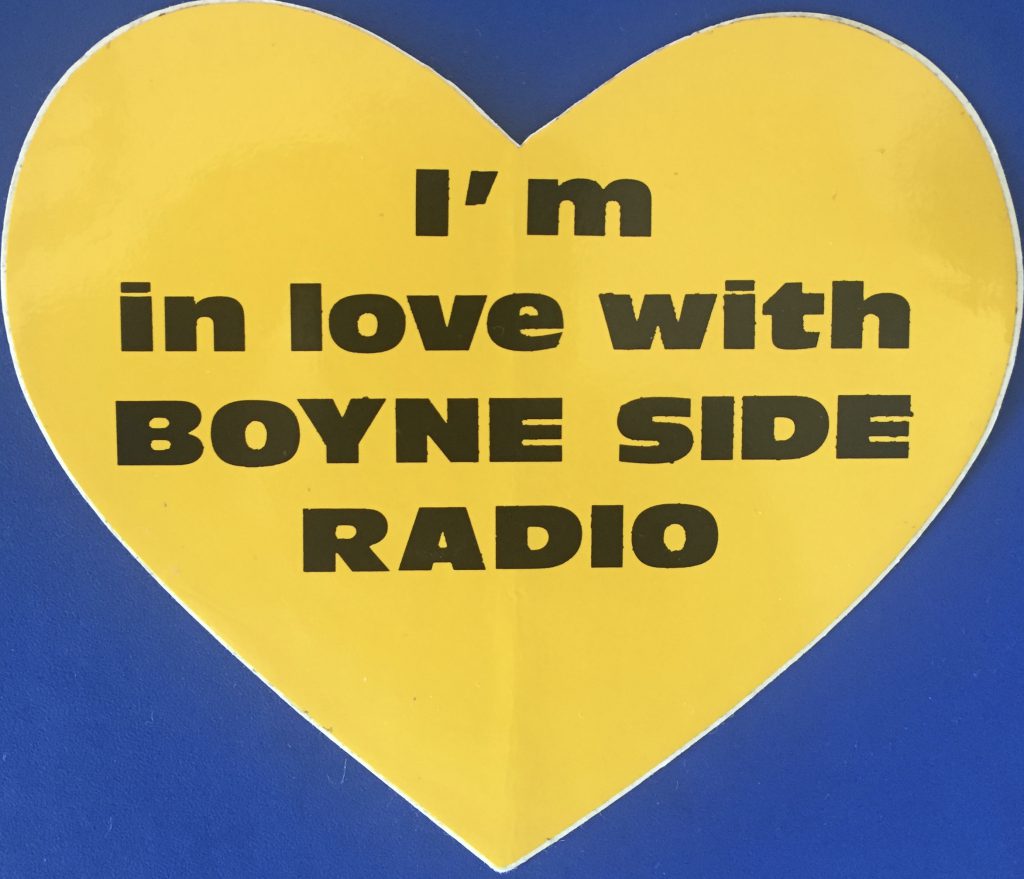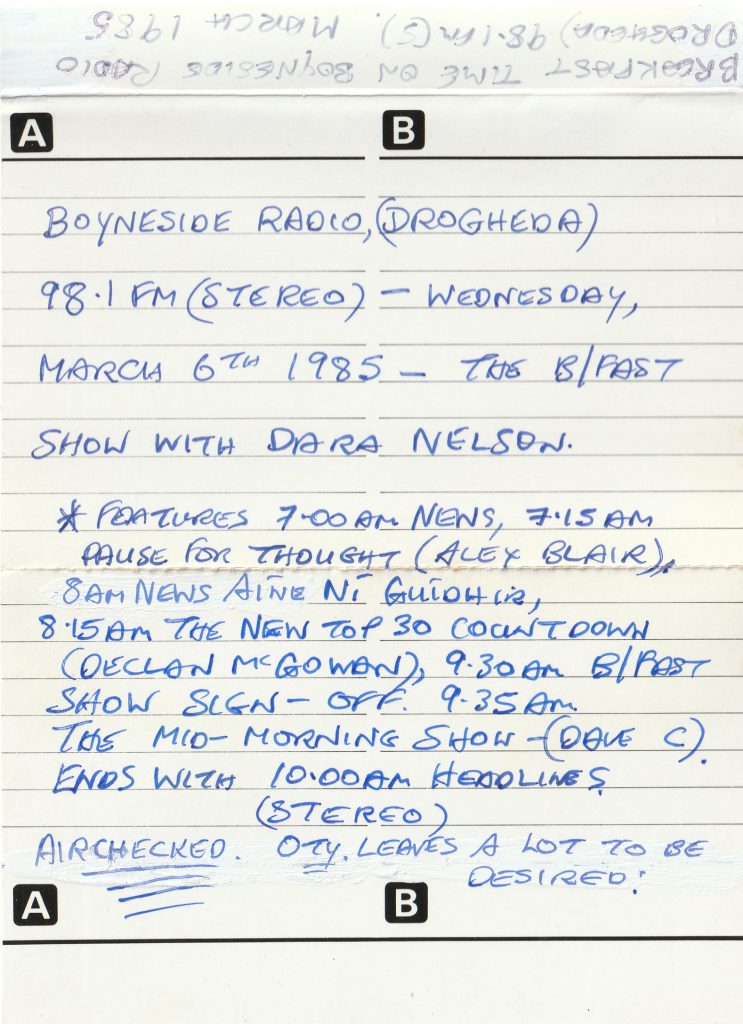Podcast: Play in new window | Download
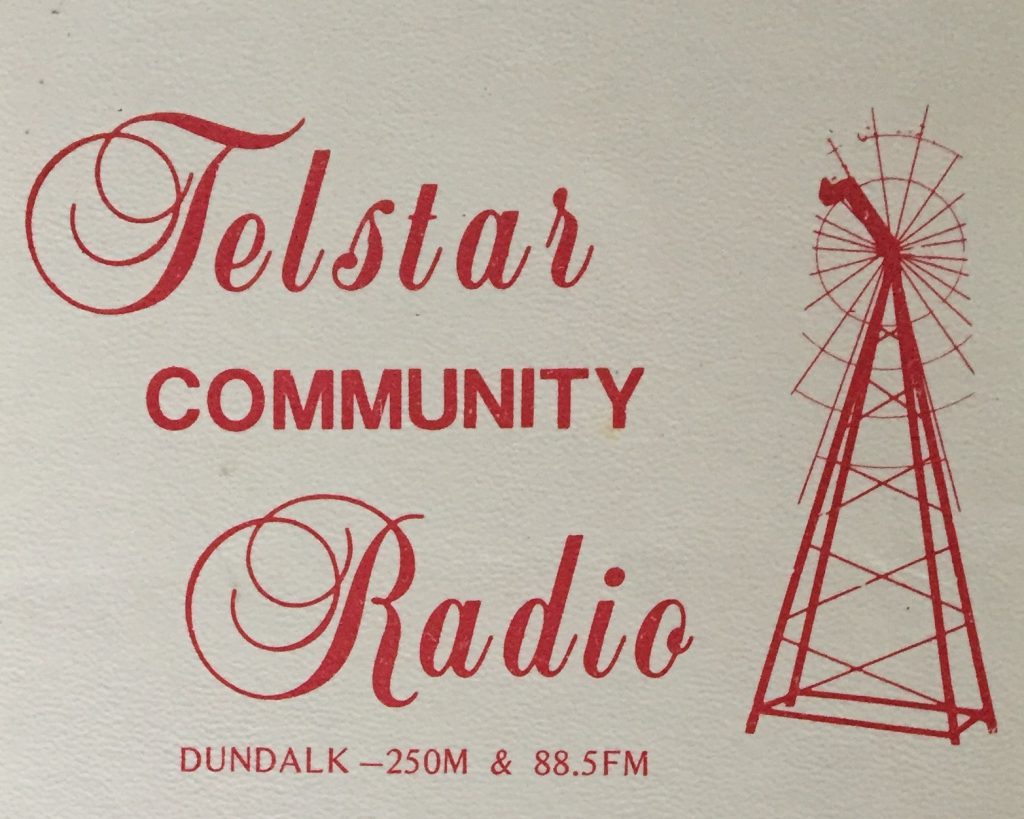
Telstar Community Radio broadcast from Co. Louth between November 1980 and the end of 1988 from locations in and around Dundalk. Its AM frequency was 1197 kHz (announcing 250 metres) and it claimed coverage from Drogheda to Newry, which was boosted when the station acquired a commercial 1 kW unit. An FM transmitter on 88.5 FM was later added but at the end of 1981, Telstar was closed down for not having planning permission for its mast. It moved to a premises above a pub in the coastal village of Blackrock south of Dundalk. Read a longer station history here.
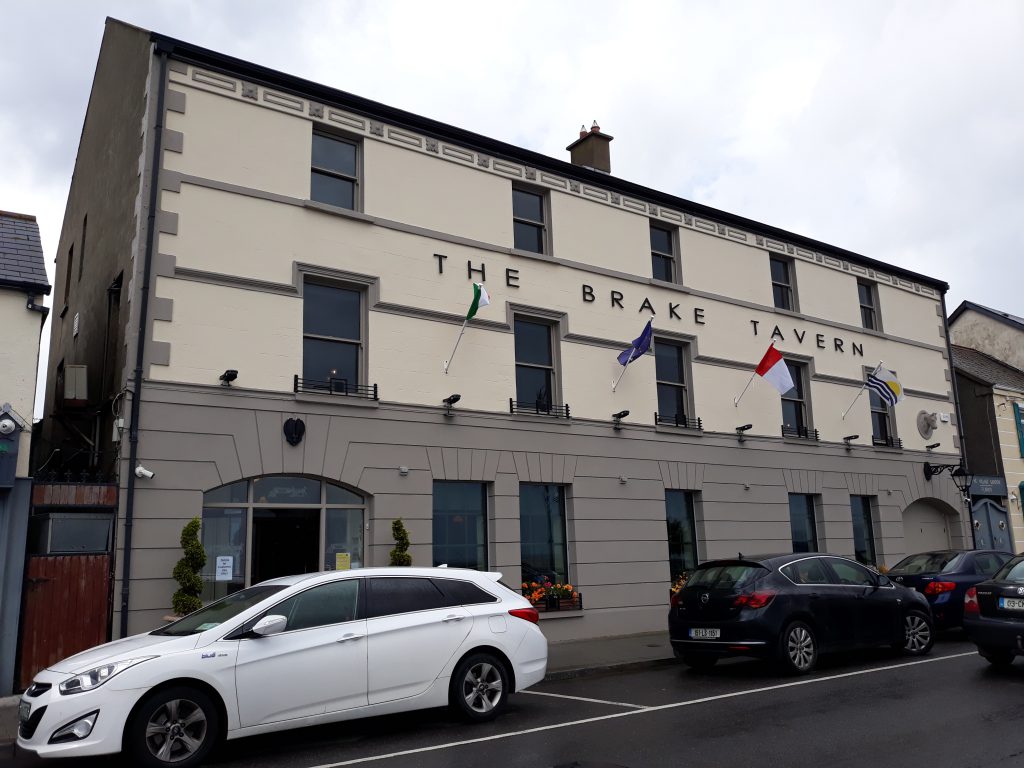
This recording of Telstar was made from 88.5 FM in mono on Saturday 23rd June 1984 and is an aircheck between 1424 and 1705. DJ Martin is up first with chart hits and is followed by Gerry Byrne with Saturday Old Gold. Adverts feature businesses from Dundalk, Newry and Navan, giving a sense of the station’s coverage at this time, and are voiced by station manager Ray Stone and another well-known local DJ Owen Larkin. Quality is excellent as the recording was made on Blackrock strand opposite where Telstar was based.
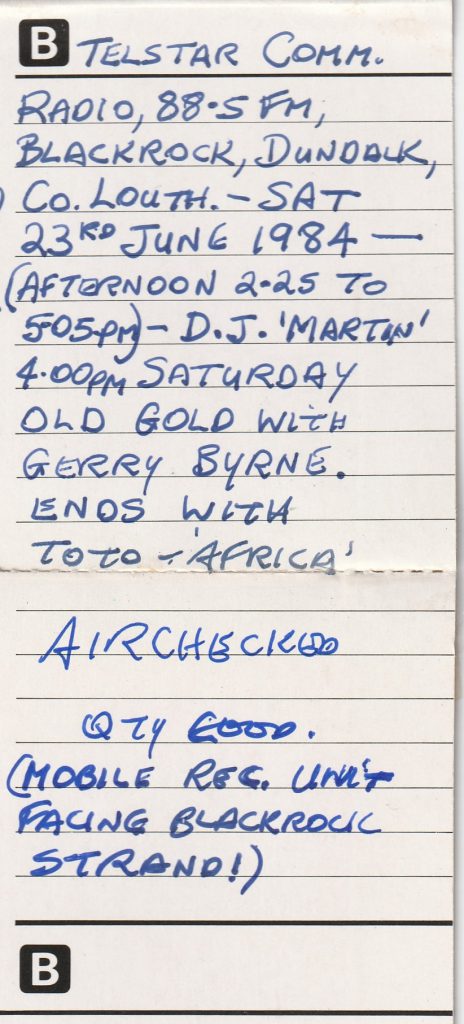
This recording was made originally by Kieran Murray and is from the Anoraks Ireland Tapes Collection, donated to us by Paul Davidson. More material from this collection can be heard on Radiowaves and the Irish Pirate Radio Archive.

